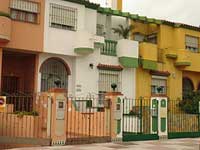Inheritance tax and inheritance law in Spain
The Global Property Guide looks at inheritance from two angles: taxation, and what inheritance laws apply to foreigners leaving property in Spain: what restrictions there are and whether making a will is advisable.
INHERITANCE TAX (Impuesto sobre Sucesiones y Donaciones)
How high are inheritance taxes in Spain?

When the owner of a Spanish property dies, his beneficiary (i.e. the individual recipient of the property and associated rights) is liable to pay an inheritance tax.
Inheritance tax is payable on lifetime gifts, or on property received on someone´s death. It is payable if the recipient of a gift, or the heir of an estate, is a resident in Spain, or if the asset being gifted or passed on death is property in Spain.
There is a set of rates and allowances fixed by the national government for inheritance tax purposes. However, since the autonomous communities may modify their own rates and allowances, this set may differ from one locality to another.
INHERITANCE TAX |
|
| TAXABLE INHERITANCE | TAX RATE |
| Up to €7,993 | 7.65% |
| €7,993 - €15,981 | 8.50% |
| €15,981 - €23,968 | 9.35% |
| €23,968 - €31,956 | 10.20% |
| €31,956 - €39,943 | 11.05% |
| €39,943 - €47,931 | 11.90% |
| €47,931 - €55,918 | 12.75% |
| €55,918 - €63,906 | 13.60% |
| €63,906 - €71,893 | 14.45% |
| €71,893 - €79,881 | 15.30% |
| €79,881 - €119,758 | 16.15% |
| €119,758 - €159,635 | 18.70% |
| €159,635 - €239,389 | 21.25% |
| €239,389 - €398,778 | 25.50% |
| €398,778 - €797,555 | 29.75% |
| Over €797,555 | 34.00% |
| Source: Global Property Guide | |
Some expenses may be deducted from the value of the inheritance: (1) burdens and encumbrances imposed directly on the asset which reduce its value (e.g. pensions, annuities, long leases); (2) duly documented debts (e.g. mortgages, pledges, state and local taxes); and (3) certain expenditures (e.g. medical costs, and expenses with regard to burial, cremation, and inheritance-related litigations).
The assessable base of a beneficiary is taxed at progressive rates. For inter vivos gifts, the assessable base corresponds with the taxable base. For inheritance, it is the amount resulting from the reduction of each qualifying beneficiary´s taxable base by fixed allowances.
To arrive at the assessable base, certain allowances may be deducted. The applicable allowance depends on the category the beneficiary falls under:
DEDUCTIBLE ALLOWANCES |
||
| CATEGORY | GROUP RELATIONSHIP | ALLOWANCE |
| I | direct and legally adopted descendants under 21 years of age | €47,859 max. |
| II | direct and legally adopted descendants of 21 years or more, spouse, and direct and adoptive ascendants | €15,957 |
| III | siblings, uncles, aunts, nephews, nieces, and ascendants or descendants by marriage | €7,993 |
| IV | cousins and other more distant relatives and unrelated persons or unknown heirs | none |
Additional allowances are given according to the condition of the beneficiary:
ADDITIONAL ALLOWANCES |
|
| CONDITION OF BENEFICIARY | ALLOWANCE |
| Disability: 65% and below | €47,859 |
| Disability: more than 65% | €150,253 |
| Source: Global Property Guide | |
The beneficiary may be exempted from inheritance tax on the habitual abode of the deceased owner if:
- the beneficiary is the spouse, an ascendant, or descendant, or he/she is a sibling, uncle, aunt, nephew, or niece (provided he/she is more than 65 years old and has lived with the deceased owner 2 years preceding his death);
- the maximum allowance for the him/her is €122, 606; and
- he/she must have lived in the owner´s habitual abode 10 years preceding the owner´s death.
Finally, the beneficiary has to pay a surcharge which can be computed by applying fixed surcharges to the basic tax due on the basis of the beneficiary´s net wealth before he received the inheritance or gift and his relationship to the deceased owner.
SURCHARGES |
|||
| Beneficiary´s Net Wealth | I & II | III | IV |
| Up to €402,678 | 0% | 59% | 100% |
| €402,678 - €2,007,380 | 5% | 67% | 110% |
| €2,007,380 - €4,020,771 | 10% | 75% | 120% |
| Over €4,020,771 | 20% | 91% | 140% |
In Spain, it is possible (and it is a better option) to leave a usufruct to the beneficiary instead of the property. This can greatly reduce the inheritance tax payable by the beneficiary.
INHERITANCE LAW
Thanks to Gómez-Acebo & Pombo Abogados
What inheritance laws apply in Spain?
Spanish laws apply to foreigners who own real property in Spain.
In Spain, the main laws concerning inheritance issues are: (i) the Civil Code; (ii) regional regulations of the Autonomous Communities, where applicable; (iii) Judicial Organic Law; (iv) the Rules of Civil Procedure; and (v) the Hague Convention of 5 October 1961 on the Conflicts of Laws relating to the Form of Testamentary Dispositions.
The Spanish legal system governing property issues is complex because of the application of different laws, dependingon the region where the property of the deceased is located. The common regulations applicable to Spanish territory in general are considered here; however, since the regional regulations of the Autonomous Communities may over-rule these common regulations, it is advisable for foreigners to request local legal advice.
The common regulations concerning inheritance of property in Spain are:
- No distinction is made between foreigners of different nationalities or religions. Any person can acquire property in Spain by purchase or inheritance.
- The ownership of real property is regulated by the laws of the region where it is situated (principle of lex rei sitae). This also applies to Spaniards owning real properties in foreign countries.
- The inheritance of most assets (excluding real property) is regulated by the law of the deceased´s nationality, irrespective of the nature of the property or the country where they are located (principle of lex personae).
- If a foreign jurisdiction refers the inheritance issues of a deceased foreigner back to Spain, then Spanish Law is always applicable, including the rules regarding reserved portions, and no further renvoi can apply. In cases of renvoi, Spanish lawapplies even if Spain was not the deceased foreigner´s domicile or place of death.

Any Court located in the territory of the deceased´s last domicile in Spain may be declared competent for inheritance issues. (Domicile in Spanish law is defined as the place where a person has his/her usual residence). In most cases, the claimant is entitled to choose the Court. If the last domicile of the deceased was not in Spain, then a Court in the country where the deceased owned the main part of his/her estate can be declared competent.
Reserved portions apply to any property regulated by Spanish law.
The portion reserved for legal beneficiaries (i.e. heirs who are relatives of the deceased) is one third of the total value of the property. The remaining two thirds may be transferred to other individuals and/or added to the existing legal beneficiaries portion.
The estate of the deceased therefore consists of:
- The legitimate portion or legitimate third;
- The improvement third, which could cause a improvement of any of the heirs´ portion observing the testators´ dispositions (but see below);
- The free third, which could be freely given to any individuals and/or entities, including the legal beneficiaries.
Legal beneficiaries include:
- Any children and their descendants, with respect to their parents and ascendants.
- Failing the above, any parents and ascendants, with respect to their children and descendants.
- Any widowed party.
All legal beneficiaries are granted the same portion of the legitimate part of the inheritance, except for a widowed spouse, whose inheritance is governed by the following rules:
- If the widowed spouse and the deceased were not legally separated or divorced, the surviving spouse is granted the usufruct of the improvement third of the inheritance (i.e. the heirs own the goods but the spouse has use of them.)
- If there are no descendants but there are ascendants, the surviving spouse is granted the usufruct of half of the inheritance.
- If there are neither descendants nor ascendants, the surviving spouse is granted the usufruct of two thirds of the inheritance
If there are no legal beneficiaries, the estate can be left to anyone desired by the deceased, by means of a will.
Intestate succession.
In the absence of a will, the law indicates who inherits the estate, and their percentages, which are equal for each of the legal beneficiarie. Under Spanish law, if a Spanish citizen or a foreigner domiciled in Spain dies intestate, then the legal beneficiaries to his/her property located in Spain are the following:
- The descendants of the deceased.
- If there are no descendants, the ascendants
- In the absence of any ascendant, the surviving spouse .
- Collateral relatives (with a 4th grade limit in the family tree).
If there are no legal beneficiaries, the State inherits the property.
A foreigner who owns property in Spain is recommended to make a will.
Foreigners whose nationality is not Spanish should take local advice when making a will concerning their assets in Spain, because Spanish legal provisions may be different to those established by the laws of the testator´s domicile. In Spain, wills can only be made when the individual reaches the age of 14.
The formalities of making a will and the mains types of wills are:
- Nuncupative will - is executed before a Spanish Public Notary and filed with the Notary´s protocol. No witnesses are required to appear with the testator. Nuncupative wills are the most common wills, and are recommended for for any foreigner wishing to make a will in Spain.
- Sealed will - is made by the testator then filed and sealed with the Notary´s protocol. The Notary is not aware of the content of the will. Sealed wills are not very common in Spain. They are not recommended for foreigners as they may contain clauses that are null and void under Spanish law.
- Holograph will - is written by the testator in his/her own hand writing. Once the testator has died, the will is made public and registered with a Notary´s protocol. Holograph wills made by people under 18 years old are null and void.
An owner may not freely give property to anyone prior to death irrespective of whether his/her nationality is Spanish.
If the owner is a Spanish citizen, or a foreigner who is domiciled in Spain, then he/she must take into account the restrictions regarding legal beneficiaries and reserved portions before giving away any property located in Spain during his/her lifetime.
Ownership deeds should be filed with the Land Registry.
Spanish law primarily looks at the Title Deeds and the Land Registry to determine the ownership of real property. Although it is not compulsory to file ownership deeds with the Registry, it is highly advisable to do so.
If the ownership deed is not filed with the Land Registry, then it is difficult to provide proof of ownership. If a doubt regarding ownership of a real property arises, prior registration with the relevant Land Registry prevails. This issue is very important, since the property could have been sold twice without the purchaser being aware of a previous sale. Registrations regarding previous purchases of inherited property should be checked, and the ownership deed should be registered as soon as the transfer of property is executed.
Spanish law does not distinguish between different types of ownership.
The Spanish Legal System does not recognise concepts such as equitable ownerships and trusts. In Spain, the State is never the ultimate proprieter of the real property as may occur in other jurisdictions.
Spouses may choose their property rights.
With respect to the influence of marriage on property, some regions (Autonomous Communities) may have different rules in force, although none of them are compulsory, and spouses may choose between these two systems:
- Own-assets agreement - each spouse has individual ownership of his/her own goods, and may freely dispose of any of them (observing the above restrictions).
- Joint Property - applied to any marriage that has not agreed an own-assets agreement. It includes the tenancy in common of 100% of the assets and the ability to freely dispose of 50% of the assets (observing the above restrictions).
If property is inherited by a child, a guardian must be appointed.
The guardian must administer the inheritance until the child becomes of legal age. A guardian can be appointed by the testator in his/her will, or in the absence of such an appointment, a Judge appoints a legal guardian.
Foreigners must follow legal requirements to acquire property in Spain.
Prior to the acquisition of real property in Spain, all foreigners must request from the relevant authorities, a Tax Identification Number for Foreigners (N.I.E.), which is required to execute the deed of ownership and its subsequent filing with the relevant Land Registry.

It might also be necessary for a foreigner to communicate the investment of property in Spain to the Spanish Directorate of Commerce and Investments. Acquisitions of real properties with a price higher than € 3,005,060 must be communicated to the Directorate. Foreign nationals from tax havens must make prior declaration of their intention to acquire a property in Spain, regardless of the property´s value.